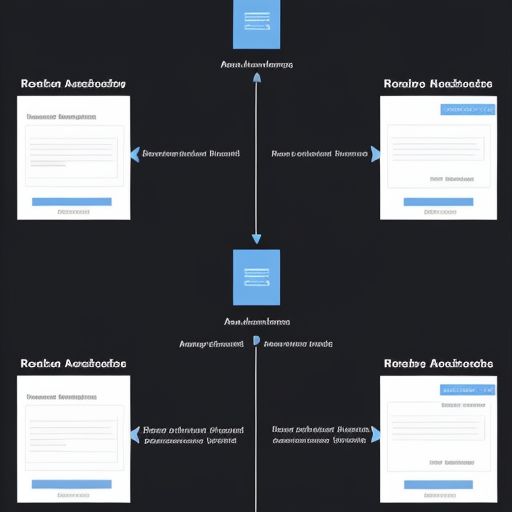In today’s digital landscape, seamless and secure access to applications and resources is paramount. As businesses embrace cloud computing and remote work models, the need for robust identity and access management solutions becomes increasingly critical. This is where Active Directory Federated Services (AD FS) steps in, offering a powerful mechanism for single sign-on (SSO) and federated identity management.
What is Active Directory Federated Services (AD FS)?
Active Directory Federated Services (AD FS) is an identity and access management service developed by Microsoft. It enables organizations to securely share digital identities and entitlements across security boundaries, even if different identity systems manage them.
Think of AD FS as a bridge between two separate kingdoms. Each kingdom has its own set of rules for identifying its citizens and granting access to resources. AD FS acts as a trusted intermediary, allowing citizens of one kingdom to access resources in the other without creating a new identity.
How Does AD FS Work?
AD FS operates on the principle of federated identity, which involves establishing trust relationships between different organizations or security domains. Here’s a simplified breakdown:
- User Authentication: A user requests access to a resource protected by AD FS.
- Identity Provider (IdP): The user’s identity is verified against the organization’s Active Directory, acting as the IdP.
- Security Token Issuance: Upon successful authentication, AD FS generates a security token containing the user’s identity information and access privileges.
- Token Presentation: The user presents this token to the application or service they wish to access.
- Resource Access: The application, acting as the Relying Party (RP), verifies the token and grants access based on the user’s entitlements.
services.toptechslife.com/wp-content/uploads/2024/07/adfs-diagram-668dfa.jpg" alt="AD FS Architecture" width="512" height="512">AD FS Architecture
Why is AD FS Important?
AD FS offers several compelling benefits for organizations:
- Simplified User Experience: Users benefit from SSO, eliminating the need to remember multiple usernames and passwords for different applications.
- Enhanced Security: Centralized identity management and strong authentication mechanisms strengthen security posture by reducing the risk of unauthorized access.
- Streamlined IT Management: AD FS simplifies IT administration by centralizing user management and access control.
- Improved Collaboration: Organizations can securely share resources with partners and external users through federation.
Frequently Asked Questions about AD FS
What are the common use cases for AD FS?
AD FS finds applications in various scenarios, including:
- Single Sign-On (SSO): Enabling users to access multiple applications with a single set of credentials.
- Business-to-Business Collaboration: Facilitating secure access to resources for partners and vendors.
- Cloud Application Access: Integrating on-premises Active Directory with cloud-based applications for seamless authentication.
What are some of the challenges of implementing AD FS?
While AD FS offers significant advantages, organizations should consider the following challenges:
- Complexity: Implementing and managing AD FS can be complex, requiring specialized expertise.
- Infrastructure Requirements: AD FS necessitates dedicated servers and infrastructure for deployment.
- Certificate Management: AD FS relies heavily on certificates, requiring robust certificate management practices.
What are some alternatives to AD FS?
Alternatives to AD FS include cloud-based identity providers such as:
- Azure Active Directory (Azure AD): Microsoft’s cloud-based identity and access management service.
- Okta: A leading independent identity provider offering a range of identity management solutions.
- Ping Identity: Another prominent identity provider with solutions for SSO, multi-factor authentication, and more.
Conclusion
Active Directory Federated Services (AD FS) remains a powerful tool for organizations seeking to implement robust identity and access management solutions. By enabling single sign-on, streamlining IT administration, and enhancing security, AD FS plays a crucial role in modern digital workplaces. However, organizations should carefully evaluate their specific needs, resources, and technical expertise before implementing AD FS. As cloud-based identity providers gain prominence, it’s essential to stay informed about the evolving landscape of identity and access management solutions.
We encourage you to share your thoughts and questions in the comments section below. Let’s continue the conversation on securing our digital identities!



